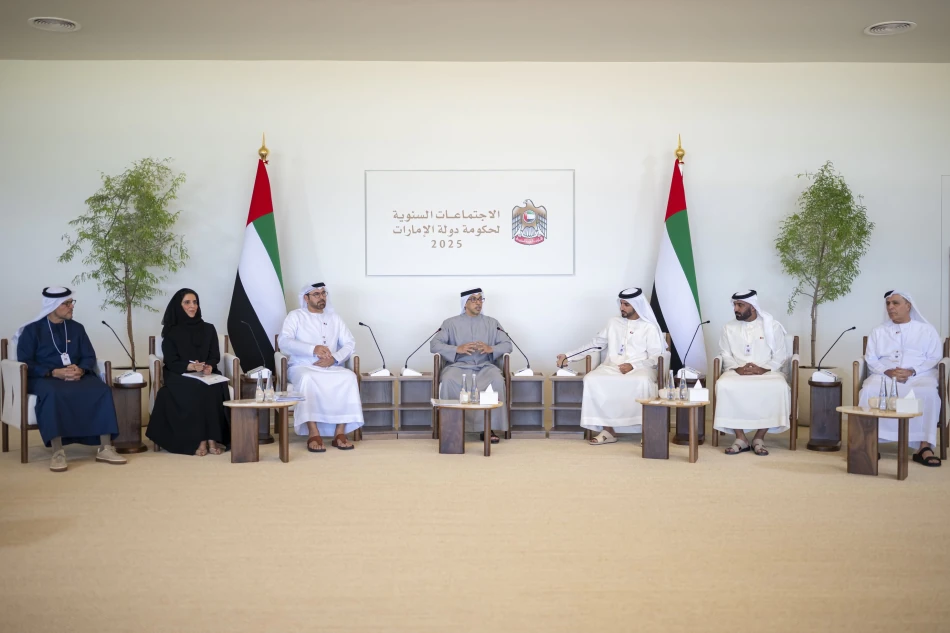
Government Coordination Spotlighted Across Key Sectors in Vital Ministerial Development Meeting
The UAE's new Ministerial Council for Development held its inaugural meeting this week, bringing together federal and local government officials for the first time as part of the country's annual government meetings for 2025. The session focused on coordinating major national projects across infrastructure, energy, and economic development sectors.
Sheikh Mansour bin Zayed Al Nahyan, Deputy Prime Minister and President of the Presidential Court, chaired the meeting. He praised government teams for their work on joint national initiatives, emphasizing how integrated planning helps maintain the UAE's competitive edge in global rankings.
The council discussed several priority areas that directly impact daily life and business operations. Traffic congestion emerged as a key concern, alongside infrastructure development and road projects. Energy sector coordination also featured prominently, reflecting the UAE's ongoing economic diversification efforts.
For businesses and investors, the meeting addressed regulatory proposals in environmental protection and digital commerce. These discussions signal potential policy changes that could affect how companies operate in the Emirates. The council also reviewed traffic and transportation regulations, which could influence logistics and supply chain operations.
The UAE's approach here reflects a broader trend among Gulf states toward more coordinated governance. By bringing federal and local authorities together, the country aims to streamline decision-making and avoid bureaucratic delays that can slow development projects.
Sheikh Mansour highlighted the role of private sector companies and residents in implementing national programs. This public-private partnership approach has become central to the UAE's development strategy, particularly as it competes with other regional business hubs.
The council also reviewed results from recent international engagements, including participation in the G20 Labor and Employment Ministers' meeting for 2025. The UAE's involvement in World Bank business environment reports was also discussed, indicating the government's focus on maintaining favorable business rankings.
The meeting covered studies on economy, investment, and industry sectors. These reviews typically inform policy decisions and budget allocations for the coming year. For market watchers, such coordination meetings often precede announcements of new investment initiatives or regulatory changes.
This inaugural council meeting represents part of the UAE's systematic approach to governance, where regular coordination helps align different government levels and agencies toward common goals. The emphasis on measurable targets and continuous service improvement reflects the country's business-oriented administrative culture.
Most Viewed News

 Sara Khaled
Sara Khaled






